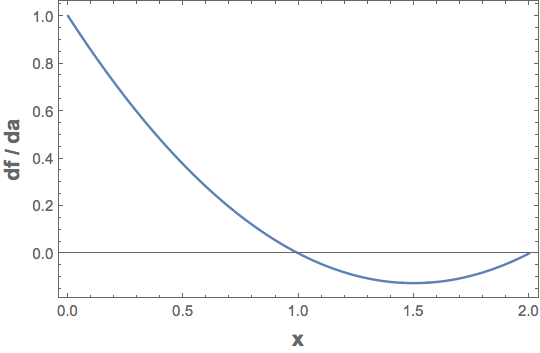I am working with interpolation function with some non-numerical arguments. A simplified version of the function I am working with is:
FUNC = Interpolation[{{0, a}, {1, b}, {2, c}}]
I would like to compute the derivative of FUNC with respect to a, b and c (for a general function value)
Potential solution: obtain the piecewise function that Interpolation generates. Problem: I do not know how to extract this piecewise function from FUNC.


{0,a}and{0,a+some value}. $\endgroup$